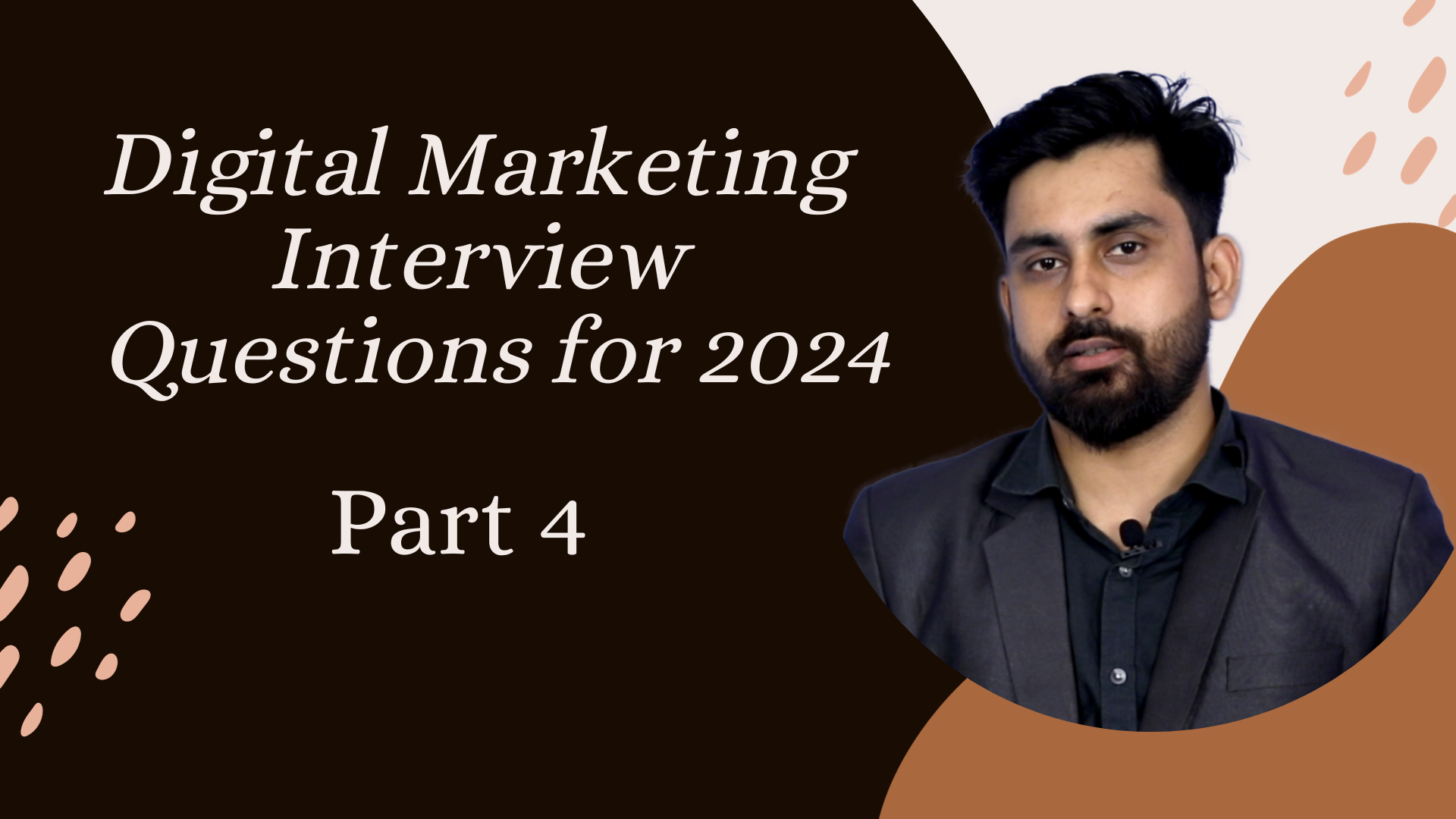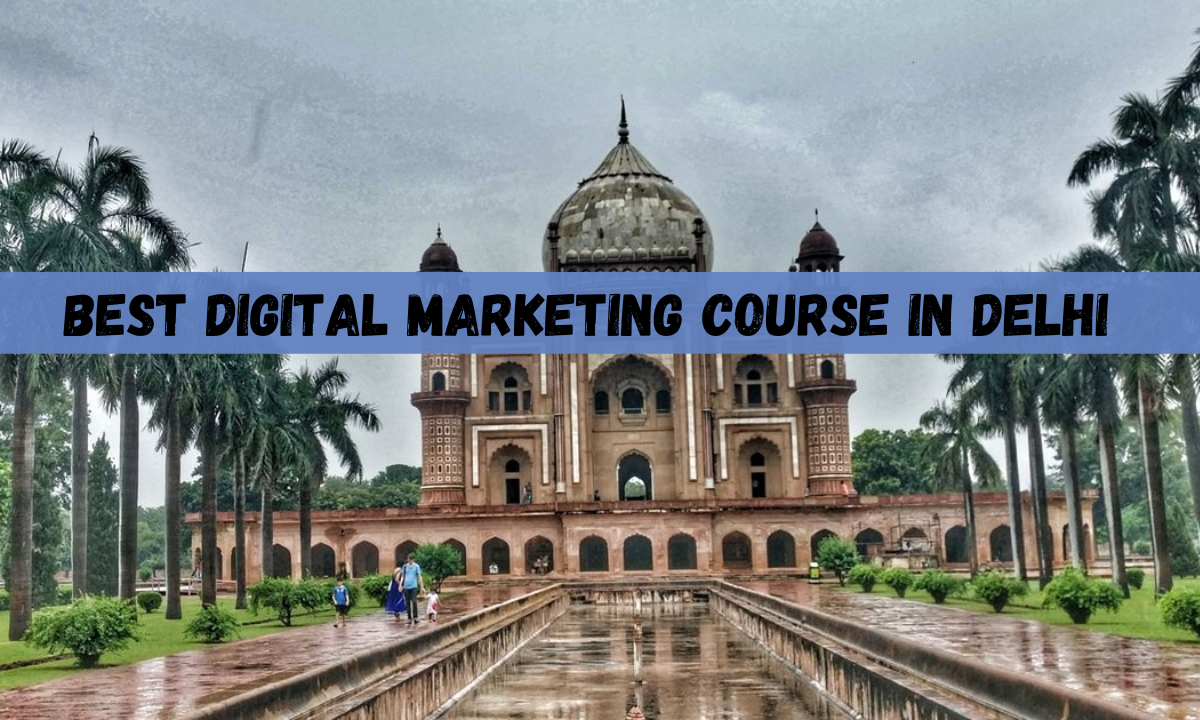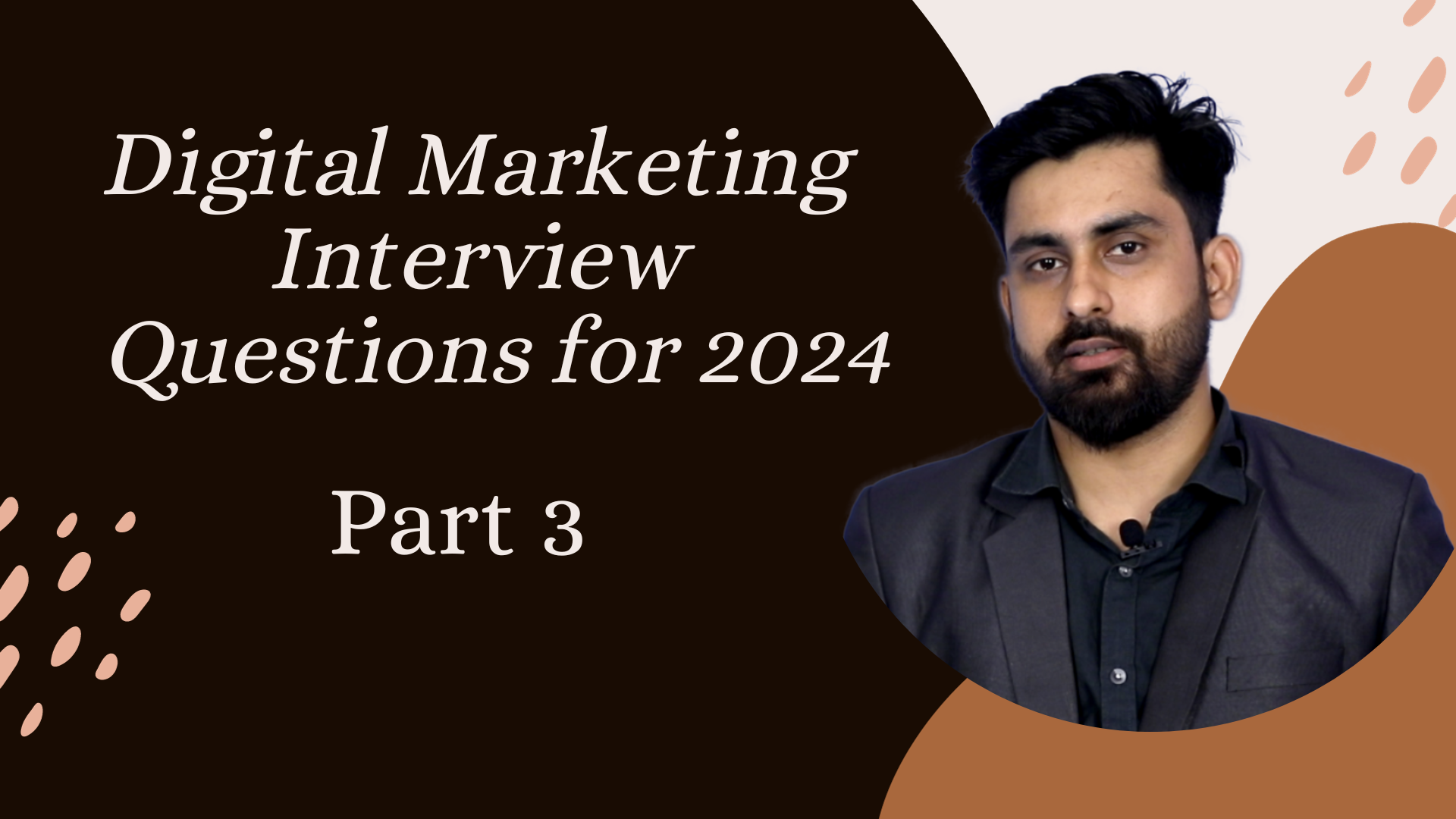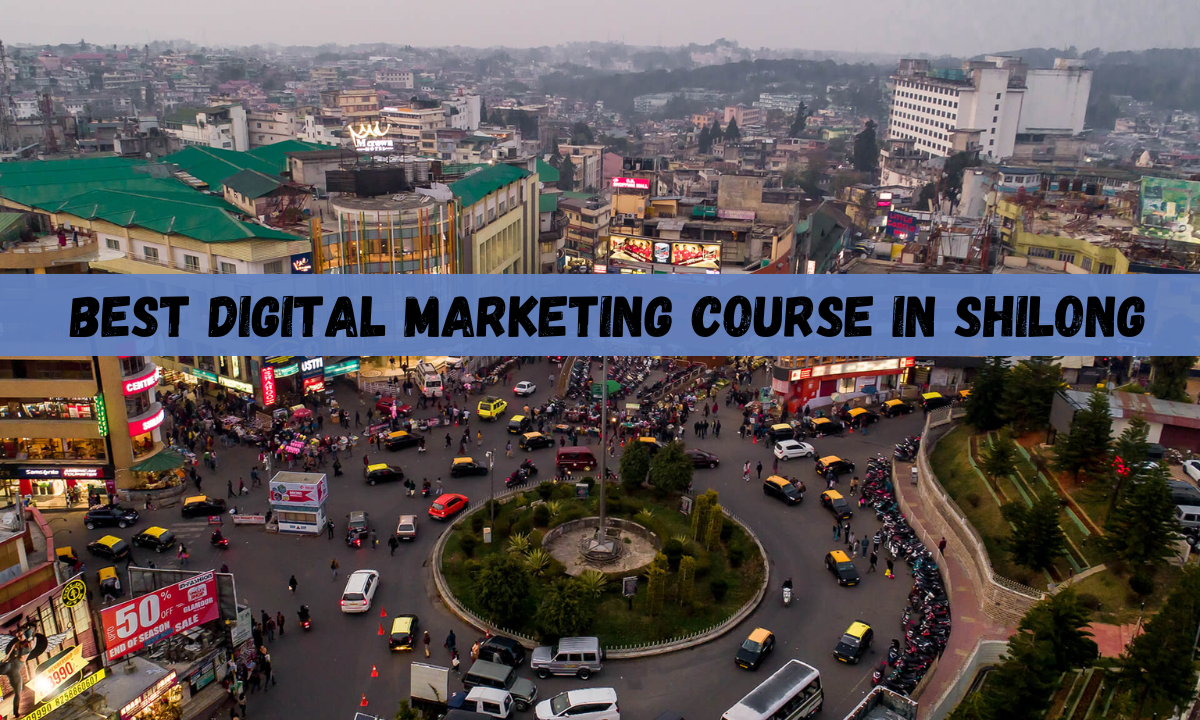In a world where more than 170 million individuals regularly engage with social media, every professional is expected to possess a fundamental understanding of Digital Marketing. In its simplest form, Digital Marketing involves promoting products through the internet or various electronic media channels. As defined by the Digital Marketing Institute, it entails utilizing digital platforms to promote and market products and services to specific consumers and businesses.
Digital content consumption is a daily occurrence, and it’s increasingly likely that traditional marketing platforms will diminish, yielding complete dominance to the digital market. Digital Marketing offers several distinct advantages, one of which is its cost-effectiveness, setting it apart from traditional marketing approaches.
Digital marketing makes it possible to reach a larger audience in less time. The clientele of traditional marketing agencies and divisions has considerably declined as a result of technological advancement. Tablets, smartphones, and laptops are now commonly used by consumers, making them the major platforms where digital marketers have achieved significant gains.
What is Digital Marketing?
Online marketing, also commonly referred to as digital marketing, is the strategy of promoting brands to engage with potential customers via online platforms and various digital communication channels. This approach encompasses the utilization of text and multimedia messages as marketing tools, in addition to email, social media, and web-based advertising.
How Successful is Digital Marketing?
In the era of digitalization, there has been a noticeable decline in the number of shoppers frequenting physical markets. Instead, an increasing number of individuals are opting to shop online for both personal and family needs. Consequently, there are numerous benefits associated with promoting your business online, as it allows you to connect with the appropriate audience, considering that your target demographic is actively present on the internet.
Benefits of Digital Marketing?
Important points are discussed below:
- It’s simpler to engage with customers and cultivate loyalty
Maintaining continuous interaction with customers is paramount for establishing trust in your organization and brand. Digital Marketing plays a pivotal role in enabling companies to maintain ongoing communication with their customers, discern their touchpoints, and more. Moreover, it fosters transparency, which significantly contributes to nurturing a dependable relationship with your customer base.
- Connect with customers at every phase
Digital marketing gives you the ability to communicate with customers at every stage of the customer life cycle, from the first website visit through the first sale. Over the course of the whole digital marketing funnel, it enables your audience to interact with your business in a variety of ways. Users can, for instance, share a blog entry that includes potential images or video. Digital marketers can create more interesting and pertinent content by carefully observing client interactions.
- Easy to Target the Right Audience
This is the foremost among the myriad advantages of Digital Marketing. It allows for precise targeting of the desired audience without excessive expenditure. Moreover, once you have successfully identified your target audience, communicating and engaging with them becomes significantly more straightforward. Digital marketing employs potent targeting methods like Search Engine Optimization (SEO) and Pay-Per-Click (PPC), enabling organizations to craft tailored marketing strategies tailored to the precise audience they aim to reach.
- Consistently generate leads
As a well-established practice, the digital marketing team forwards the leads they’ve gathered to the sales teams for further engagement. Digital marketing excels in acquiring high-quality leads through the utilization of various analytical tools, including Google Analytics. Remarkably, the cost of obtaining these leads is more economical compared to traditional marketing methods. Moreover, it’s important to note that lead generation is an ongoing process, characterized by consistent efforts to produce high-quality leads rather than a singular phase.
- Optimized and Better Conversion Rates
Digital marketing’s targeted approach aligns results with marketing objectives, leading to elevated conversion rates. Additionally, the utilization of robust analytics tools in digital marketing enables real-time campaign performance monitoring, ultimately yielding optimal conversion rates and a surge in sales figures.
Inbound marketing versus digital marketing
Digital marketing and inbound marketing can be easily confused due to their shared use of tools like email and online content. Both aim to attract prospects through the buyer’s journey and convert them into customers. However, these approaches differ in their perspective on the relationship between tools and goals.
Digital marketing focuses on how individual tools or digital channels can convert prospects. A brand’s digital marketing strategy might involve various platforms or concentrate solely on one. For instance, a company may prioritize creating content for social media and email marketing while neglecting other digital avenues.
In contrast, inbound marketing takes a holistic approach. It starts with the goal, then assesses the available tools to determine which will effectively reach the target audience and at which stage of the sales funnel. For example, if your aim is to increase website traffic for generating more prospects and leads, you can emphasize search engine optimization in your content marketing strategy, resulting in more optimized content across blogs, landing pages, and more.
The key takeaway is that as a marketing professional, you don’t have to choose between digital marketing and inbound marketing; they can complement each other effectively. Inbound marketing provides structure and purpose to digital marketing efforts, ensuring that every digital channel contributes to a specific goal.
Types of Digital Marketing
Digital marketing encompasses a wide range of strategies and channels for promoting products, services, or brands online. Here are some of the best primary types of digital marketing:
1. Search Engine Optimization (SEO):
Search Engine Optimization, abbreviated as SEO, holds a paramount role in the realm of digital marketing for businesses. It entails the strategic practice of positioning your web pages or articles prominently in the search results of search engines such as Google and Bing. This involves the deliberate inclusion of specific keywords or phrases in your content that align with prevalent search trends on these platforms. SEO is applicable across various channels, including websites, blogs, and infographics.
2. Content Marketing:
In order to create leads and increase sales, content marketing, a subset of digital marketing, focuses on the creation and promotion of various content kinds. This content is available in a variety of formats, including blogs, social media posts, podcasts, videos, and infographics. It is distinguished by its emphasis on search engine optimisation (SEO) and user-friendliness, which automatically draws in new customers.
3. Social Media Marketing:
Social media marketing involves the art of engaging people in online discussions to drive both web traffic and enhance brand awareness. Through social media marketing, you have the opportunity to showcase your brand, products, services, company culture, and more. Given the immense number of individuals who actively participate in online interactions on various social media platforms, dedicating resources to social media marketing can prove highly rewarding.
Among the digital platforms popularly utilized for social media marketing, Facebook, Twitter, and Instagram stand out, with LinkedIn and YouTube closely following suit. Your choice of social media platforms should be driven by your specific objectives and the characteristics of your target audience. For instance, if your goal is to acquire new leads for your FinTech startup, directing your efforts toward LinkedIn is advisable due to its active user base of industry professionals. Conversely, if you operate a B2C-focused brand targeting younger demographics, running social media advertisements on Instagram might yield better results.
4. Email Marketing:
The essence of email marketing is straightforward: you transmit a promotional message and anticipate that your potential recipient engages with it. Nevertheless, the execution entails a far more intricate process. Foremost, you must ensure that your emails are solicited and welcomed.
The most successful email marketing campaigns typically feature a subscriber list that has been cultivated through the merits of your content rather than one that has been purchased. It’s important to recognize that individuals who willingly subscribe are more likely to engage with your brand, and they should be the primary focus of your efforts. Email marketing serves multiple purposes, including creating brand awareness, nurturing a loyal customer base, and soliciting valuable feedback from your customers.
5. Pay-Per-Click (PPC) Advertising:
With pay-per-click, often known as PPC, you get charged each time a user clicks on one of your online advertising. You can develop ads for this type of advertising, which is frequently linked to platforms like Google Ads and Bing Ads, so they can show up on websites or in search engine results. Each click on an advertisement results in a compensation for the advertiser.
6. Affiliate Marketing:
Affiliate marketing falls within the realm of digital marketing, involving a collaboration between two businesses. In this arrangement, one business promotes the products or services of the other on its website or app. Essentially, affiliate marketers act as intermediaries, marketing other people’s products and earning a commission when they generate leads.
Partnering with affiliates can facilitate the expansion of your reach and lend a more organic feel to your marketing endeavors. For instance, MakeMyTrip, an Indian travel company, has incorporated an affiliate program into its long-term digital marketing strategy. This program allows interested parties to easily team up with the company and earn revenue whenever they contribute to lead conversions.
7. Influencer Marketing:
Influencer marketing is the practise of cooperating with someone who have a sizable following—often celebrities, thought leaders in the field, or content creators—in exchange for visibility. These influencers frequently recommend your goods or services to their followers on different social media channels.
Influencer marketing works well for both B2B and B2C businesses looking to reach out to new customer bases. Nevertheless, it’s critical to collaborate with reliable influencers because they essentially serve as brand ambassadors. The trust that customers have in your company could be harmed by a poor influencer selection.
8. Native Advertising:
Digital marketing that operates covertly is native advertising. Its main goal is to blend in with the surrounding information naturally, disguising its true nature as advertising.
Native advertising has its roots in the scepticism that modern consumers have towards advertisements. Many consumers instantly presume bias and choose to ignore commercials because they are frequently supported by the people who create them.
By beginning with information or entertainment value before integrating any promotional aspects gradually, native advertising efficiently minimises the obvious “ad” part and gets over this inherent bias.
Best way to create digital marketing strategy
Here are some ways to your digital marketing strategy:
Set SMART goals
Establishing SMART goals—specific, measurable, achievable, relevant, and timely—is paramount for any marketing strategy. While there may be a plethora of objectives you aspire to attain, it’s essential to concentrate on those that will drive your strategy forward rather than keeping it in a standstill.
Map out your strategy
Develop a well-defined strategy based on your desired outcomes and the methods to achieve them. Utilizing the GSOT strategy framework—Goals, Strategies, Objectives, and Tactics—can serve as a valuable tool to align your plan effectively.
- Goals:These represent your high-level aspirations, such as increasing sales by 5% or garnering 200 sign-ups for an event.
- Strategy: This outlines the overarching approach you will employ to realize your goals, often categorized along the stages of the marketing funnel, encompassing awareness, interest, desire, and action.
- Objectives: These are quantifiable metrics that directly connect to your goals. For instance, if your goal is a 5% sales increase, an objective might involve generating 200 leads or reaching 400 individuals.
- Tactics:These are the specific actions and tools you employ to support your objectives. For instance, if you aim to secure 200 leads, you might employ tactics like utilizing a dedicated landing page with a webinar and leveraging social media to engage potential clients.
By establishing a clear strategy, you can channel your efforts towards the areas most likely to drive business growth. In the realm of digital marketing, the possibilities are vast, but the real challenge lies in determining what actions are most effective for your objectives.
Define your target audience
In the realm of digital marketing, you possess the capability to execute campaigns with an extraordinary level of precision in targeting. Move beyond conventional demographic targeting and strive for utmost specificity. Develop detailed buyer personas that epitomize your ideal customer, allowing you to gain profound insights into their characteristics and preferences.
Build your content strategy
Aligning with your marketing objectives and understanding your target audience, craft a comprehensive content plan. This plan should intricately delineate the primary themes or categories of content that will be integrated into your overall execution.
Embark on comprehensive research aimed at pinpointing the exact interests, needs, and pain points of your audience. Construct a roadmap outlining the overarching content categories or “buckets” that will resonate most effectively with your target audience. These thematic categories should encompass an array of content formats, encompassing blog posts, articles, videos, infographics, and more.
Furthermore, consider the timing and frequency of content publication to ensure consistent engagement with your audience. By meticulously planning your content in this manner, you can strategically address your marketing objectives while catering to the preferences and requirements of your target audience.
Select your channels and strategies
After identifying the content that resonates with your audience, make informed choices regarding the channels that are poised to yield the most favorable outcomes.
Deliberate on the array of available digital channels, tools, and tactics at your disposal. Subsequently, arrange them in order of priority in accordance with the strategy devised in the second step. Assess the role each channel plays in advancing your objectives and goals, ensuring alignment with your overall strategy.
Why is digital marketing important?
Digital marketing is a powerful avenue for brands to connect with their desired audience and promote their products or services. While traditional marketing campaigns share the same objective, digital marketing offers a distinct advantage by enabling brands to pinpoint a highly specific or niche audience.
The digital landscape allows for precision in targeting, ensuring that your message reaches the individuals most likely to be interested in what you have to offer. By engaging with customers in the digital realm, brands can cultivate a broader audience that places trust in their products and services. This trust-building aspect is particularly advantageous for small businesses, which can readily harness digital marketing strategies without the need for a dedicated marketing department or external agency.
In essence, digital marketing empowers brands to not only extend their reach but also forge meaningful connections with their target demographic, ultimately fostering brand loyalty and business growth. It is a versatile and cost-effective tool that levels the playing field, enabling businesses of all sizes to compete and thrive in the digital age.
Q. Is digital marketing a good career to pursue?
Yes, digital marketing has immense potential and is a great career to pursue. The invention of the Internet and Smartphones has boosted Digital marketing. Also, do not forget that covid has accelerated the speed at which businesses have moved online.
Q. Is digital marketing difficult?
Digital Marketing as a beginner might be challenging especially if you are trying to learn digital marketing by yourself.
But later with constant practice you will get better and familiarised with the concepts such as search engine optimization, data analytics, content writing, and much more.
Q. What is the role of a digital marketer?
As a digital marketer, you will be expected to undertake promotional activities to promote a company’s products or services by making the optimum use of marketing tools such as Social Media, SEO, SEM, and much more.
Q. What is the future of digital marketing?
The digital marketing industry is evolving rapidly. The invention of 3D Billboards and Augmented Reality proves that digitalisation is here to stay and has a very positive future.
Q. How can I start a career in digital marketing?
There are many elements of digital marketing. Start by reading articles and blogs about digital marketing and research as much as possible. While researching find the area of your interest and then maybe you can do a course in the subject of your interest.
Conclusion
We hope that after reading this blog, you now have a better understanding of the concept of digital marketing.
In this blog we have understood the importance of digital marketing and how leveraging them can be eighter challenging or beneficial for us.
We understood the types of digital marketing strategies so that you can choose the mix most suitable for your business or area of interest.
Most importantly we understood the process to develop a digital marketing strategy from scratch right to it’s implementation.
If you are interested in making a career in digital marketing then check out our 3 months Course
Click it now for Digital Marketing Course
Find out the course that fits your requirements and kickstart your career straight away











One Response
hello